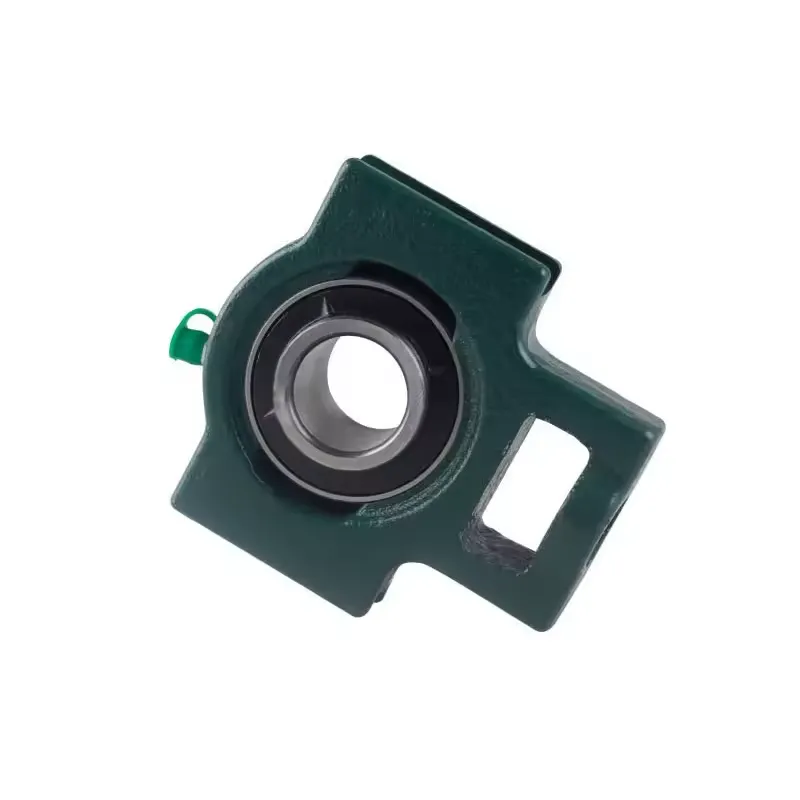Aug . 16, 2024 18:30 Back to list
Suppliers of Customized Special Bearings for Various Applications and Industries
Understanding Special Bearings A Comprehensive Guide for Suppliers
Bearings play a crucial role in various mechanical applications. Among the myriad types of bearings available, special bearings stand out due to their unique designs and functionalities tailored for specific industrial needs. Suppliers of special bearings must not only understand the technical specifications but also the evolving market demands and applications where these bearings can be effectively utilized.
What are Special Bearings?
Special bearings are engineered components designed for specific conditions that standard bearings may not adequately fulfill. These can include high-temperature environments, extreme loads, or unique movement requirements. Examples of special bearings include
- Thin-section Bearings Ideal for applications with space constraints, such as robotics or precision machinery. They maintain performance while minimizing weight and bulk.
- Magnetic Bearings Used in applications necessitating frictionless operation, these bearings are often found in high-speed rotating equipment where minimal wear and tear are essential.
- Ceramic Bearings Made from advanced materials, ceramic bearings offer excellent corrosion resistance and reduced weight, making them suitable for hostile environments like chemical processing
.The Role of Suppliers
special bearings catalog suppliers

Suppliers of special bearings serve as key players in the supply chain, connecting manufacturers with the requisite components to streamline production. Their responsibilities extend beyond mere provision of products; they must also offer expert guidance to ensure clients select the most appropriate bearing for their application.
1. Product Knowledge Suppliers must be well-versed in the various types of special bearings, including their mechanical properties, material compositions, and application scenarios. This expertise enables them to provide valuable advice to clients seeking solutions to specific operational challenges.
2. Customization Many industries require bespoke bearing designs to meet particular requirements. Suppliers should be equipped to understand customer specifications and collaborate with manufacturers to create custom solutions. This may involve adjusting sizes, materials, or tolerances to suit unique applications.
3. Quality Assurance The performance of special bearings is critical to the reliability of machinery and equipment. Suppliers must ensure that their products meet industry quality standards, which involves rigorous testing and quality control processes. Certificates of compliance and material safety data should be readily available to reassure customers of product integrity.
4. Technical Support Clients may require ongoing technical support to address issues related to installation, maintenance, or failure analysis of special bearings. Suppliers should have a knowledgeable team that can assist customers through challenges, potentially saving time and avoiding costly downtime.
5. Market Trends and Innovations The bearings industry, much like any other, experiences shifts in technology and market needs. Suppliers must stay abreast of these trends, be it the move towards sustainable and eco-friendly materials, advancements in smart bearing technologies, or shifts in regulatory standards. Engaging in continuous education and industry events can provide valuable insights.
Conclusion
In summary, the role of suppliers in the special bearings market is multifaceted and critical for the smooth operation of various machinery and equipment. As industries evolve and new technologies emerge, suppliers must adapt their offerings and services to meet changing customer needs. By fostering strong relationships with both manufacturers and clients, suppliers can ensure not only their success but also contribute to the seamless functionality of the systems that rely on special bearings. As the demand for specialized solutions continues to grow, so too will the importance of informed and responsive supply chain partners in this niche market.
Latest news
-
25MM 2 BOLT UCFLX05-14 Flange bearing unit( oval)
NewsMar.07,2025
-
4 bolt UCF 200 series Pillow block bearings
NewsMar.07,2025
-
25MM 2 BOLT UCFLX05-14 Flange bearing unit( oval)
NewsMar.07,2025
-
UCF216-50 4-Bolt Flange Housing Square Bearing
NewsMar.07,2025
-
25MM 2 BOLT UCFLX05-14 Flange bearing unit( oval)
NewsMar.07,2025
-
spherical roller bearing material exporter
NewsMar.07,2025





